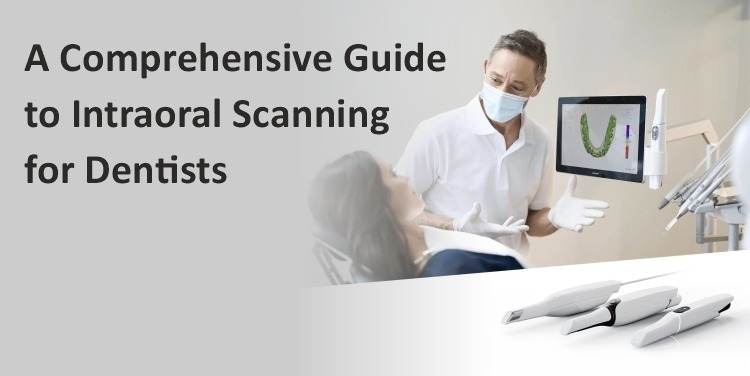Efficiency in Dental Clinic Operations: Compressor Systems
Empowering Dental Clinics with Compressor Systems
In the intricate world of dental care, efficiency and reliability form the backbone of successful operations. At the heart of this efficiency lies a component often unseen but always essential: the dental clinic compressor. These compressor systems play a pivotal role in the smooth functioning of dental practices, powering a wide array of equipment that is fundamental to daily dental procedures. From driving handpieces to operating suction units, dental clinic compressors are indispensable in ensuring that practices can deliver high-quality care.

The Role of Compressors in Modern Dentistry
Dental air compressor systems are specifically designed to meet the unique demands of dental operations, offering clean, dry, and uncontaminated air. This specialized design is crucial for preventing cross-contamination and ensuring the longevity and reliability of dental instruments. As we delve deeper into the contributions of these systems, it becomes clear that they are more than just operational tools; they are catalysts for efficiency and effectiveness in dental practice equipment.
The introduction of air compressor systems into dental practices marked a significant advancement in dental technology. By providing a consistent and reliable power source, these systems have allowed dental professionals to focus on precision and patient care, without the distractions of equipment failures or inefficiencies. Whether it’s for routine cleanings or complex surgical procedures, the quality of the compressed air directly impacts the outcome of dental treatments.
Setting the Stage for Exploration
As we explore the contributions of compressor systems to dental operations, we will examine how advancements in compressor technology have enhanced the efficiency of dental practices. From the selection of the right compressor system to understanding the impact of maintenance on performance, this discussion will cover the essential aspects of integrating and optimizing air compressor systems in dental clinics.
- The Role of Dental Air Compressor Systems in Clinic Operations
A Vital Component in Dental Care
Dental air compressor systems are indispensable in the daily operations of a dental clinic, serving as the lifeline for a multitude of dental procedures. Their role extends beyond merely powering tools; they ensure that these tools operate efficiently, reliably, and safely, thereby directly influencing the quality of dental care provided.
Ensuring Efficiency and Reliability
One of the critical features of dental air compressor systems is their ability to deliver clean, dry air. The purity of the air is essential in preventing moisture-related complications in dental tools, which can lead to tool degradation or malfunction. Moreover, the absence of moisture is crucial in avoiding the growth of bacteria and other pathogens, ensuring that the air used in patient treatments is safe and free from contamination.
The reliability of dental air compressor systems is another cornerstone of their contribution to dental clinic operations. High-quality compressor systems are designed to offer consistent performance under continuous use, a typical scenario in busy dental clinics. This reliability ensures that dental professionals can carry out their work without interruptions, maintaining a steady flow of operations and enhancing patient throughput.
Features Contributing to Dental Service Efficiency
Modern dental air compressor systems come equipped with various features designed to optimize dental practice operations. Noise reduction technology is one such feature, where compressors operate quietly, minimizing distractions and creating a more comfortable environment for both patients and dental staff.
Another significant feature is the adjustable pressure settings that allow dental professionals to tailor the compressor’s output to specific tools and procedures. This flexibility ensures that delicate procedures can be carried out with precision, while more robust operations have the power they require.
Energy efficiency is also a critical aspect of contemporary dental air compressor systems. With energy-saving modes and efficient design, these systems help clinics reduce operational costs while still maintaining high performance. This efficiency not only benefits the clinic’s bottom line but also contributes to environmental sustainability efforts.
The Backbone of Dental Clinic Operations
In conclusion, dental air compressor systems play a foundational role in the operations of a dental clinic. Their importance lies not just in the power they provide but, in the efficiency, reliability, and safety they bring to dental services. Features such as air purity, noise reduction, adjustable pressure settings, and energy efficiency enhance the overall functionality of these systems, making them a crucial investment for any dental practice aiming for high-quality care.

- Advantages of High-Performance Compressor Technology
Elevating Dental Care with Advanced Compressors
In the realm of dentistry, where precision and reliability are non-negotiable, high-performance compressor technology stands out as a key factor in enhancing clinic operations. Among the leaders in this field, Gnatus Compressors exemplify how cutting-edge technology can significantly benefit dental practices. These compressors are designed to meet the specific needs of dental professionals, offering solutions that ensure the smooth and efficient running of dental tools and equipment.
Benefits of High-Performance Compressor Technology
Consistent and Reliable Operation: High-performance compressors like those from Gnatus are engineered for consistency and reliability. They provide a steady flow of clean, dry air, which is essential for the optimal operation of dental instruments. This reliability minimizes downtime due to equipment failure, ensuring that dental procedures can be carried out without interruption.
Enhanced Equipment Longevity: The clean, dry air produced by Gnatus Compressors helps in preserving the integrity and extending the lifespan of dental tools. By eliminating moisture, which can lead to corrosion and bacterial growth, these compressors contribute to maintaining a sterile environment and reducing the need for frequent repairs or replacements.
Improved Patient Experience: The quiet operation of high-performance compressors like Gnatus enhances the patient experience. Dental procedures can be intimidating, and the reduced noise levels help in creating a more calming atmosphere, making dental visits less stressful for patients.
Energy Efficiency: Gnatus Compressors are not just about performance; they are also designed with energy efficiency in mind. By optimizing energy use, these compressors contribute to lower operational costs and support dental clinics in their efforts to be more environmentally friendly.
The Role of Reliable Compressor Technology
The backbone of reliable dental practice operations lies in the quality of its compressor technology. Gnatus Compressors, with their advanced features, play a pivotal role in ensuring that dental tools operate smoothly and efficiently. The precision in air pressure control allows for meticulous dental work, from routine cleanings to more complex surgical procedures, underscoring the importance of high-quality compressor technology in achieving successful dental outcomes.
Moreover, the reliability of Gnatus Compressors means that dental professionals can focus on their primary task of providing care, rather than being concerned with equipment malfunctions. This reliability is crucial in fast-paced dental environments where efficiency and patient turnover are key operational metrics.
In conclusion, high-performance compressor technology, as exemplified by Gnatus Compressors, offers substantial benefits to dentistry. From ensuring the consistent and reliable operation of dental tools to enhancing the overall patient experience, the advantages of investing in top-quality compressor systems are clear. As dental practices continue to evolve, the integration of advanced compressor technology will remain central to delivering exceptional dental care.

- Maintenance and Sustainability of Dental Compressor Systems
Ensuring Longevity and Efficiency
The longevity and efficiency of dental air compressor systems hinge significantly on regular maintenance and sustainable operation practices. These systems, crucial for the smooth running of dental clinics, require careful attention to ensure they continue to provide clean, dry air and operate reliably over time. Understanding the maintenance requirements and adopting strategies for sustainable operation are key to preserving the functionality and extending the lifespan of these essential systems.
Maintenance Requirements for Optimal Performance
Regular maintenance of dental air compressor systems is paramount for ensuring their optimal performance. Key maintenance tasks include:
– Air Filters Replacement: To ensure the delivery of clean air, the air filters in compressors should be checked regularly and replaced as needed. This prevents the entry of contaminants into the air supply and dental tools.
– Drainage of Moisture Traps: Compressors typically have moisture traps that need to be drained regularly. Accumulated moisture can lead to corrosion and microbial growth within the system, compromising the quality of the compressed air.
– Checking and Tightening of Connections: Over time, the vibration from the compressor’s operation can loosen connections and fittings. Regular checks and tightening of these components are necessary to prevent air leaks and maintain system efficiency.
– Lubrication: If the compressor system is not oil-free, then proper lubrication of moving parts is crucial. This reduces wear and tear, ensuring smoother operation and reducing the risk of breakdowns.
Strategies for Sustainable Operation
Beyond maintenance, adopting strategies for sustainable operation can significantly enhance the long-term reliability and environmental footprint of dental air compressor systems. These strategies include:
– Investing in High-Efficiency Models: Modern compressors, such as those offered by leading brands, are designed with energy efficiency in mind. Opting for these models can reduce energy consumption and operational costs.
– Implementing a Preventive Maintenance Schedule: Regular, preventive maintenance can prevent small issues from becoming major problems. This approach not only extends the life of the compressor but also ensures it operates at peak efficiency.
– Educating Staff on Proper Use: Training dental clinic staff on the correct use and handling of compressor systems can minimize unnecessary strain on the equipment. Simple practices, such as turning off the compressor when not in use, can contribute to its longevity.
– Monitoring System Performance: Keeping a close eye on the compressor’s performance and addressing any changes promptly can prevent major malfunctions. Regular performance checks can help identify issues before they lead to significant downtime or costly repairs.
In conclusion, the maintenance and sustainability of dental air compressor systems are crucial for the efficient operation of dental clinics. By adhering to regular maintenance requirements and employing strategies for sustainable operation, dental professionals can ensure the reliability and longevity of their compressor systems. This not only supports the delivery of high-quality dental care but also contributes to the clinic’s overall operational efficiency and environmental responsibility.





Leave a comment